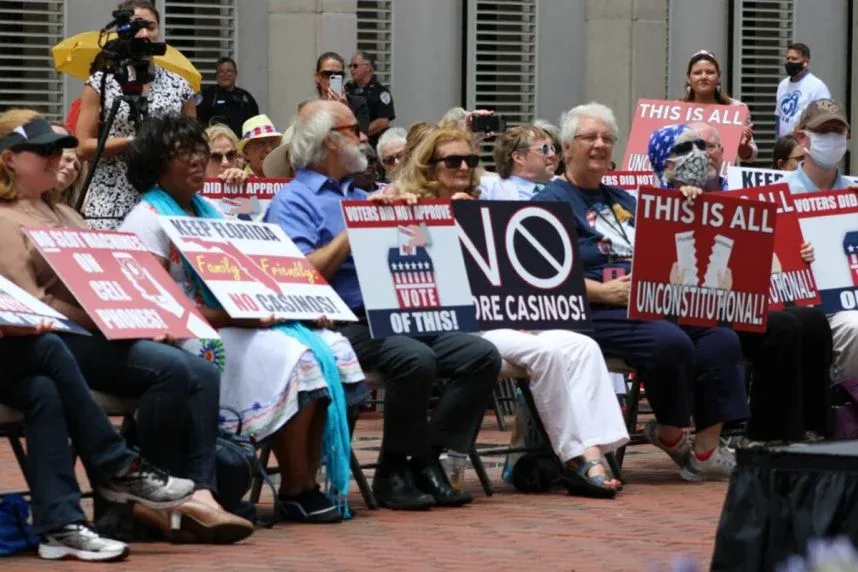Florida Sports Betting Case Gains Support from Anti-Gambling Advocacy Group.

The battle over gambling in Florida has taken a new turn with the group No Casinos, Inc. challenging the state's gaming compact with the Seminole Tribe. No Casinos has a long history of opposing gambling expansion in the state and was behind the 2018 constitutional amendment that required voter approval for any further expansion of casino gambling. This amendment received strong support from 71% of voters, clearly indicating the public's stance on the issue.
In 2021, Governor Ron DeSantis signed a gaming compact with the Seminole Tribe, granting them a virtual monopoly on mobile and retail sports betting in Florida. The compact also allowed the tribe to expand its casino operations. This move has been met with fierce opposition, particularly from pari-mutuel operators like West Flagler Associates. They argue that the compact, especially its provisions for online betting, violates the Indian Gaming Regulatory Act (IGRA), which prohibits off-reservation gaming.
The legal battle has been ongoing, and it recently reached the US Supreme Court. In a significant development, the court blocked the gaming compact from taking effect while it considers the case. This decision has created a legal limbo, leaving Florida as one of the largest states in the US without a legal sports betting framework.
Now, No Casinos, Inc. has intervened in the case by filing an amicus brief in the Florida Supreme Court. They argue that the gaming compact not only violates the text and spirit of the 2018 constitutional amendment but also runs counter to the public policy behind it. The compact's provisions for off-reservation gaming, especially the "hub and spoke" model for online betting, are deemed incompatible with state law.
The crux of the issue lies in whether the governor and legislature have the authority to authorize such off-reservation gaming, a question that federal courts have largely skirted. The DC Circuit, which initially heard the case, emphasized that it's up to Florida's courts to interpret state law and determine the legality of the compact. No Casinos contends that the governor and legislature have overstepped their authority by attempting to legislate in an area that falls outside their purview.
The Seminole Tribe, while named in the suit, has decided not to file a response to the case in the US Supreme Court. Instead, they have indicated they will comply if the court desires their input. This ongoing legal battle is significant for Florida's gaming landscape and could have implications for the broader debate over the expansion of gambling in the state.
